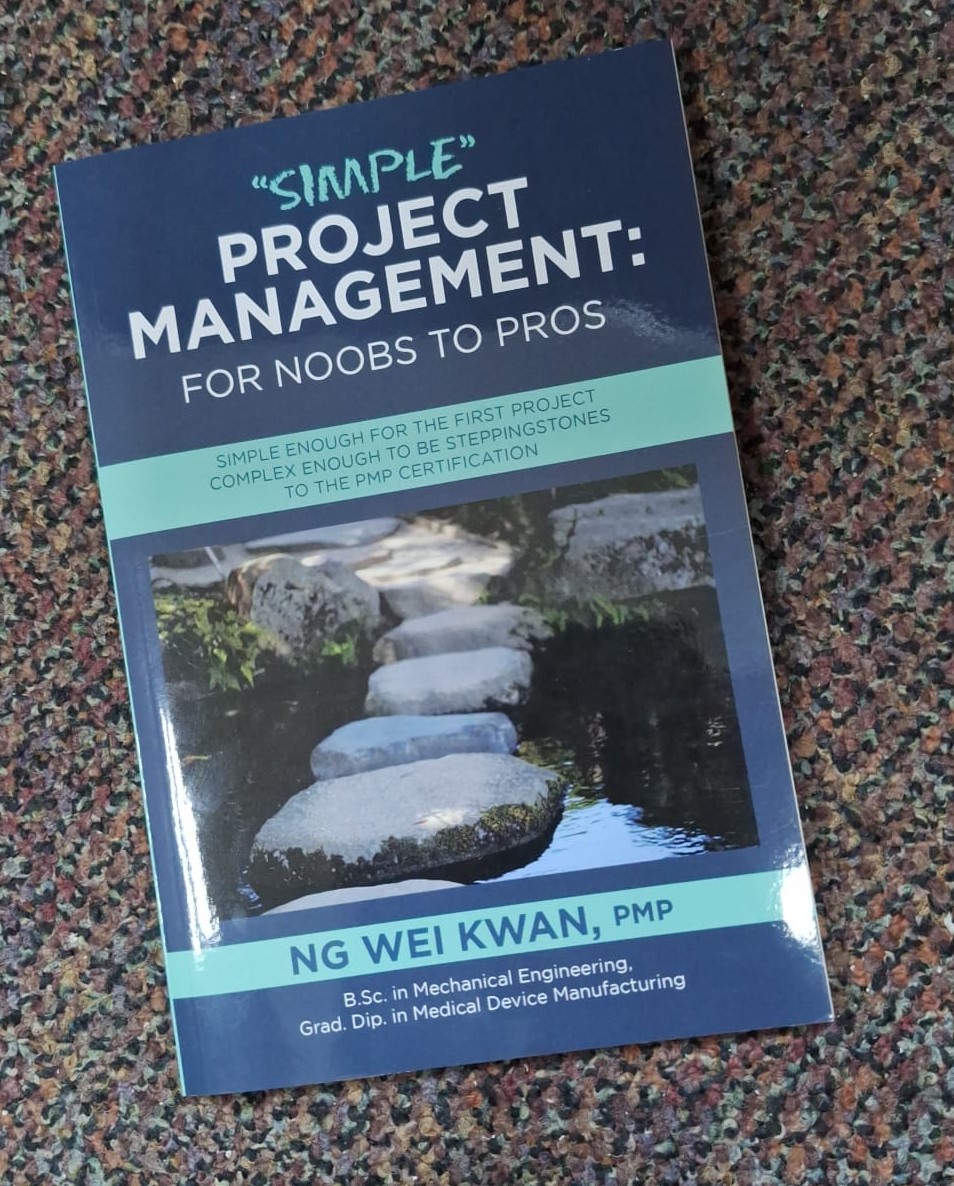The third and most unheralded part of the physical body is none other than SLEEP…yes, plain old, sleep. It is easy to think that diet and exercise contributes to the overall well-being, but most people would probably not put sleeping at the same level. If you sleep a lot, many would consider this as a sign of laziness or a waste of time, which is absolutely wrong. One of the better books that i have read is this one called Why We Sleep by Dr. Matthew Walker, associate professor (psychiatry) at Harvard and researcher on sleep at UC Berkeley. In his book, he talked about a group of researchers who did an experiments on sleep deprivation on rats. While we are all familiar that humans cannot survive long without food or water, the research found that the rats die at roughly the same time due to lack of sleep compared to lack of food. Initially, they could not identify the root cause, but after running some more test, they found that it is internal gut bacteria that went out of control that killed the rats, something which sleep can easily help to control. He also provided advice on best practices and answers some common questions on sleep, such caffeine and melatonin.
The Physical You – Exercise
Ahh…exercise. One of the those things that everyone knows is good for us, and everyone says “we must do”. But when it really matters, we prefer to just stare at our phones (social media, games, etc.) and let the days go by without as much as lifting a finger. Sadly, it gets worse with age – the older we get, the lazier we become, and we feel that exercise is not important..to our own detriment. If we really wish to improve our project to be a better person, exercise must be something that we must do. Let’s take stock of what exercise is and review the several types and see how we can add exercise in our daily/weekly routine. In its simplest form, exercise is defined as any “activity that requires physical effort, that is carried out to sustain and improve health and fitness”. The guideline from WHO is about 150 minutes of physical activity (you can use Google Fit to measure Heart Points) to live longer, sleep better and boost our mood. The key here though, is to maintain the the effort. It is one thing to just do it once, but the secret is that we continue doing it, in good days and bad days. To expand the definition, we can say that “exercise is a prolonged physical effort to improve health and fitness”. So, what are some of the exercise that we could do and sustain? This can be classified into 3 categories. Sports Given a choice, and you have friends/buddies/family to do this with, doing sports is the best form of exercise. We not only work out our bodies, we also get to engage with the other players which does wonders to our mental health. Sports is also the one activity that is the easiest to clock the 150 Heart Points – time flies when we are having fun. These include badminton, tennis, (flag) football, soccer, basketball, hockey (ice and field), ultimate frisbee, etc. All you need to do is ask, “can I join?” Group Exercise The next best thing, if we do not have people to do sports with, is to sign up for group exercise at your local club, community. Some classes may be available at your company during the lunch hour or at the end of day. This applies to yoga/Pilates or spin classes (which are getting very popular these days). Martial arts (karate, aikido, tae-kwon-do, ju-jitsu, kendo, etc.) and dance (ballroom dance such as tango, cha-cha or dance cardio, etc.) will fall into this category. Do visit your local gym or community clubs to ask if classes are available – just sign up and try. Solitary Exercise Last but not least, especially if there are no buddies to do sports or classes in the local gym is that one can just go outside to the park or just a walk around the block. Or just visit the local gym and start weight training on machines. If doing it for the first time, there are usually trainers who would be most willing to provide tips on how to start lifting weights. A third option is to actually go to YouTube and open up a video on Tabata or HIIT and follow the instructions…similar to older folks doing exercise with Jane Fonda or Richard Simmons. And if you are really old, you will remember watching Jack Lalanne (I watched hi show when I was a kid). The best exercise? So, which one is the best? The best exercise is the one that you will be doing, again and again, on a consistent basis. It could be the (once a week) Pilates class, then a game of basketball on a Thu night. Then a 30-minute gym session followed by a 3-5km walk on Sat morning. If that does not work (weather not permitting), then perhaps we get a rowing machine, or stationary bike or treadmill. Whatever the exercise may, the most important is that it gets the heart (slightly) pumping and maintaining the frequency of exercise across weeks, months, years. Here is to a better you….
“What is Your Dream?”
If you have been on Instagram for a while, you probably would have come across videos of Simon Squibb. He is the one who walks around asking people what their dream are or he will be asking if people would want to read his book “What is Your Dream?” There are sceptics who are wondering if he is for real, if he really means what he says. I am curious as well. So I did some research on who Simon is. Turns out – he does not need to do any of these but he does it because he really want to help others. I found that that he started off homeless and is now worth over $600M because he sold one of his many companies he founded to PwC. Now, he is on a mission to help others do the same. I don’t have $600M in my bank account (not many people do), but I guess we can help others as well with the little that we have. So I decided to do something different in the project management class that I teach at Agilent Technologies. Rather than focusing on just work-related projects, I offered the class an opportunity to work on personal projects. These are the ones related to activities outside of work that will help improve one’s lives for the better. To my dismay, after conducting the classes for years (over a decade), the take up rate is low. Prior to the class, I will send out a message asking the participants to come with a project in mind…most come with no projects in mind (they are just there to listen to me talk), with a small percentage asking how to resolve the current (work) project issues. Less than 10 came with personal improvement projects. Is it because the participants are super contented with life? Or is it because they could not care less? Or, in my opinion is the most likely scenario, that there is no guidance on what the future holds? We probably have been spoon-fed in school (or by our parents) that when left on our own, we are just happy to accept what life is giving us. Either that, or we spend too much time on Facebook, Instagram or TikTok. In my 20s, the lunch talk revolves around getting that job that pays $10,000 per month. In my 30s, we start talking about our children, and in my 40s when people are moving to leadership positions, we start talking about our health and what other dreams we have that we have achieved now that we have the finances to do it. In our 50s, we start talking about retirement and how much money we need to retire early, if possible. Let us embark on a journey of self improvement. I will take as a guide the chart proposed in book “Living Forward” by Michael Hyatt and Daniel Harkavy, to explore the various things we can do to be a better person. I invite you to join me… NEXT: the most important person – YOU Project Management
“Simple” Project Management: for Noobs to Pros: Simple Enough for the First Project Complex Enough to be Steppingstones to the PMP certification by Ng Wei Kwan PMP
A robust, no-nonsense manual that combines the essentials of project management with practical wisdom. Ng cuts through the jargon to deliver a straightforward, no-frills guide for mastering project management fundamentals. Leveraging his expertise as a PMP-certified project manager, Ng lays out a roadmap for understanding core project management concepts, progressing from foundational elements to advanced practices with clarity and precision. The book strikes a perfect balance between theory and application, using real-world examples and case studies to engage readers. Each chapter builds naturally on the last, introducing concepts like the Work Breakdown Structure (WBS), scheduling techniques, and risk management with accuracy. Detailed scenarios, step-by-step strategies, and a rich collection of templates equip readers with a toolkit that translates theory into action. The book’s section on PMP certification is particularly valuable, offering a clear roadmap with eligibility details, study strategies, and exam tips—making it an essential guide for aspiring PMPs. While some project management books tend to overwhelm with jargon or dense technical content, Ng’s work remains approachable and relevant. He speaks directly to the reader, dismantling the common misconception that project management is overly complex. Whether you’re leading a small team or overseeing large-scale initiatives, the book provides the clarity and tools needed to navigate projects with confidence and competence. A must-read. Buy now Pub date May 6, 2024 Partridge Publishing Singapore ISBN 978-1543781571 Price $29.99 (USD) Hardcover, $14.99 Paperback, $3.99 Kindle edition
One of the greatest myths about projects is that all projects are successful or that “if you build it, they will come”.
The famous phrase is from the baseball movie popular in the 1990s called “Field of Dreams” starring Kevin Costner. The story is about Iowa farmer, Ray, who hears a voice telling him that “if you build it, he will come”. He followed the voice and eventually built a baseball field in the middle of his cornfield. The movie ended with a stream of cars heading to his field to enjoy the game. Over the years, this phrase undergoes a subtle change to say “if you build it, they will come”. For some reason, people start using the phrase to say that if we do something, it will succeed, which is a great lie! All of us want to believe in the happy ending a la Disney movies: if we start a business, we will make lot of money, if we post a video on YouTube or start a blog, it will become viral and we will be rich and famous, if we marry, we will live happily ever after – if we start a project, it will be successful. Well, the real truth (and nothing but the truth) is that…projects fail, and many fail big time: (1) Data from McKinsey says 70% of transformation projects fail; (2) 75% of business and IT executives anticipate that their projects will fail, and (3) 70% of software projects will be late with 30% significantly late. Even the Bible has a similar story: in the Parable of the Sower as told by Jesus, out of the 4 seeds that were sown, only one (the last one) is successful. Yep, 75% of the seeds failed! Here are some main reasons for the failure: Weak personal reason Lack of commitment from superiors Inadequate planning Absence of use involvement New and unfamiliar technology I suspect that all will find the reasons familiar, because we all have seen in some form or another. In many cases, we did something because it seems like a good idea (at the time). Some also had the idea but we did not take action. Once we start doing the actual work, then we realized we may have bitten more than we can chew and things start to deteriorate and eventually die a uncomfortable death. The good news is that this is not the end. If we put in the efforts and we follow some tried and tested processes honed over many years by experts, the chances of seeing success improves a lot. Will share more in the next post. To learn more, I have written a book describing the process: Partridge
Living our lives as though playing a game of checkers rather than international chess
Just sharing an article on Planksip.org that talks about how we are living our lives as though playing a game of checkers rather than international chess. In checkers, we often make quick decisions on the next move as a reactionary approach versus chess where every move has to be evaluated in advance. The same rule applies in life – we often choose the easy way out when our projects go awry, when our superiors/colleagues disagree with what we say, when our children are unhappy what Papa/Mummy has to say. Let’s aim to live life in a manner that all our actions are carefully deliberated, as though we are playing chess, and perhaps sprinkled with prayer that it will work together for good…. https://www.planksip.org/from-checkers-to-chess…/…






